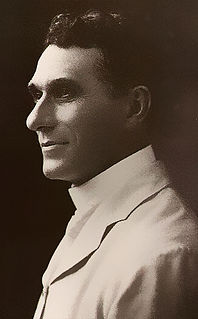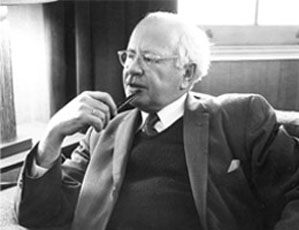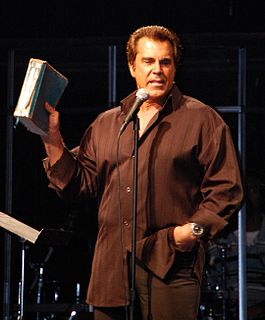A Quote by Larry Hurtado
In Destroyer of the gods I focus on several major features of early Christianity that made it distinctive, even odd or bizarre .We don't today realize just how different early Christianity was in that context.
Related Quotes
The idea that Christianity is basically a religion of moral improvement... has its roots in the liberal Protestantism of the late nineteenth century and early twentieth century... It is this stereotype which continues to have influence today... But then came the First World War... What had gone wrong was that the idea of sin had been abandoned by liberal Christianity as some kind of unnecessary hangover from an earlier and less enlightened period in Christian history.
With an abstract idea it is possible to enter into a relation of formal knowledge, to become enthusiastic about it, and perhaps even to put it into practice; but it can never be followed in personal obedience. Christianity without the living Christ is inevitably Christianity without discipleship, and Christianity without discipleship is always Christianity without Christ.
Let us remember that every worldview-not just Christianity's-must give an explanation or an answer for evil and suffering...this is not just a problem distinctive to Christianity. It will not do for the challenger just to raise the question. This problem of evil is one to which we all must offer an answer, regardless of the belief system to which we subscribe.
There is a reason Christianity is violently opposed in our world while other religions and philosophies are tolerated... Biblical Christianity evokes violent responses from some people, because only in Christianity is there an absolute right and wrong. People hate the Bible and Christianity because of the law of God.
To me, the Craft is what Christianity was 2,000 years ago. It was a religion that was not corrupted. I personally think Jesus was a Crafter. We believe in all the things that he spoke of. The early Christians believed in reincarnation, and that was later removed from the belief system. Early Christians had a female Divinity, and that was taken out of their belief system, or as with Catholicism, replaced with Mary. Look at how incredible the growth in devotion of Mary is. It's amazing. The desire for a female Divinity is not just Wiccan. It speaks of a global need.































